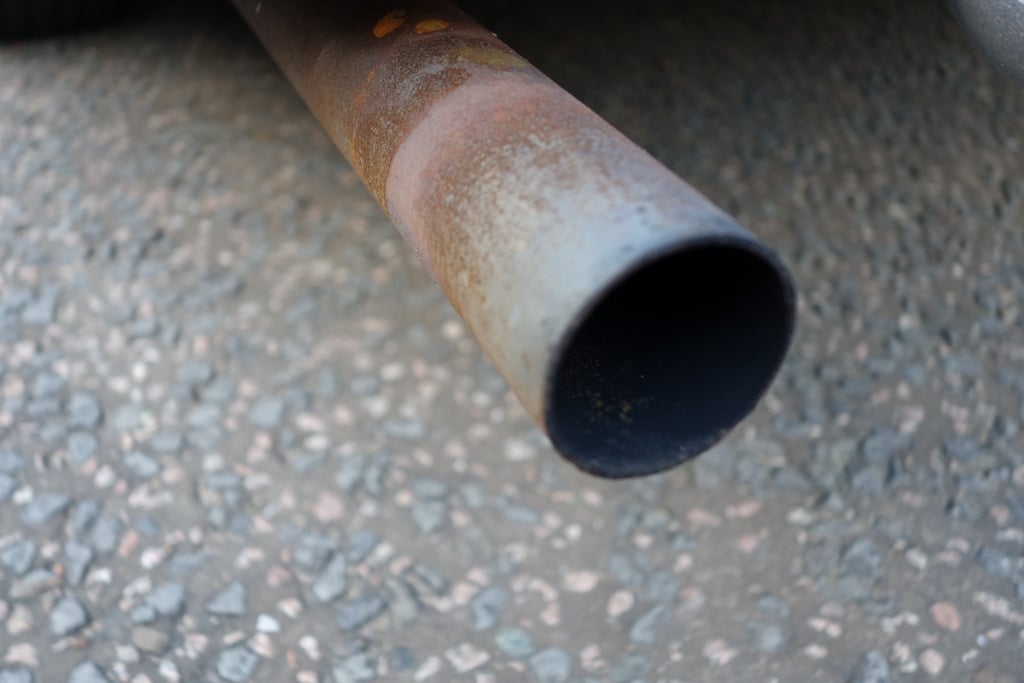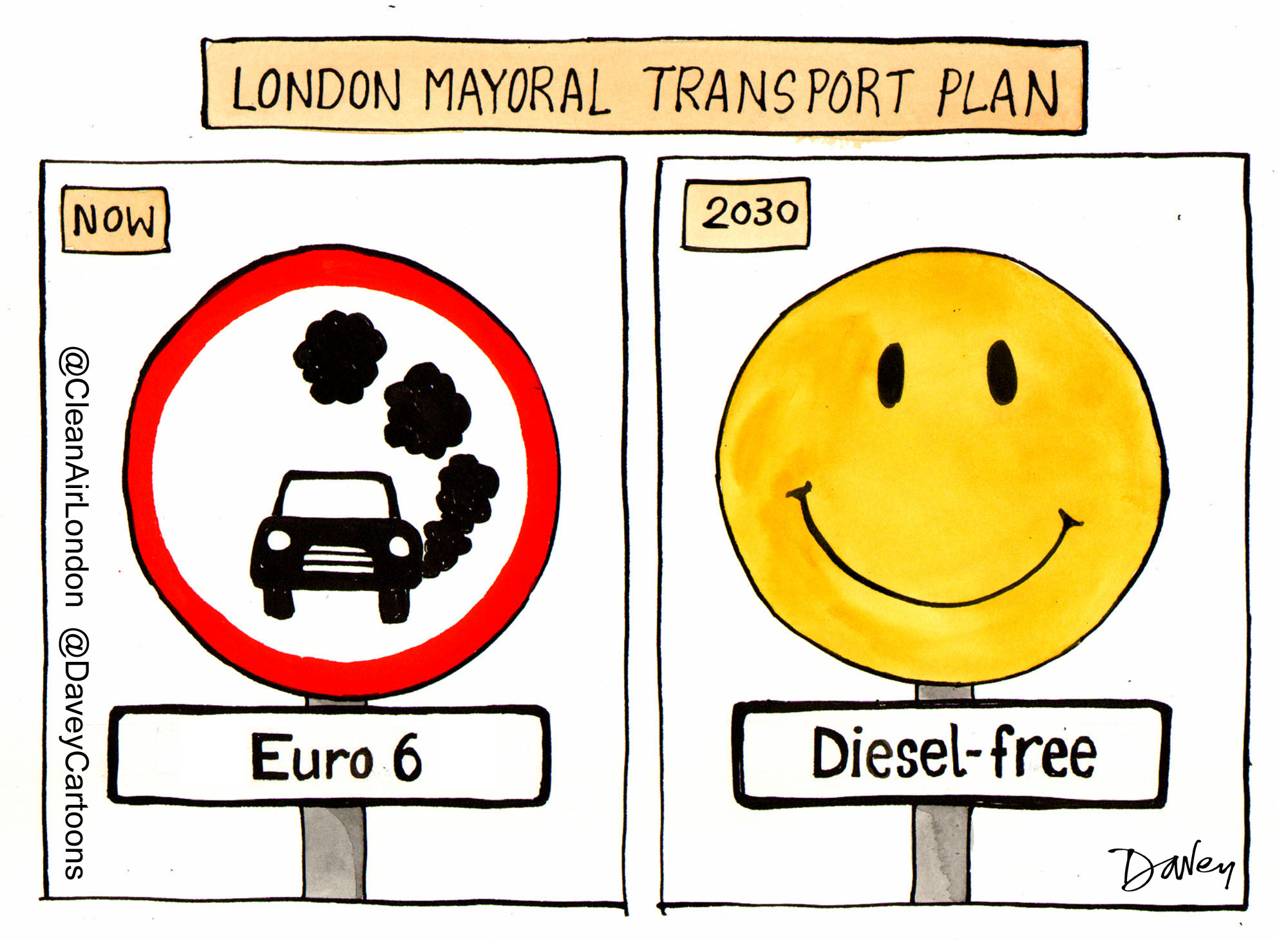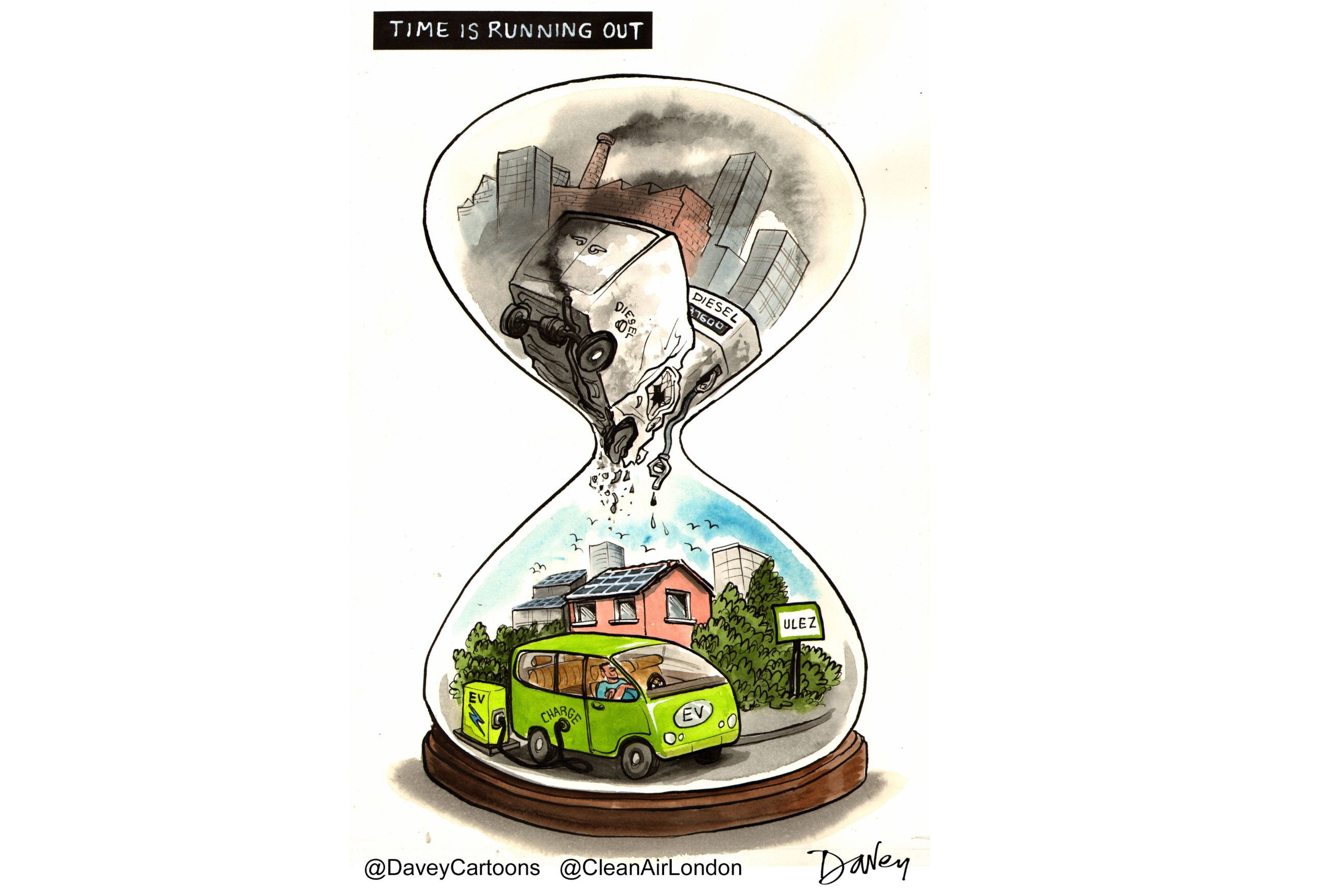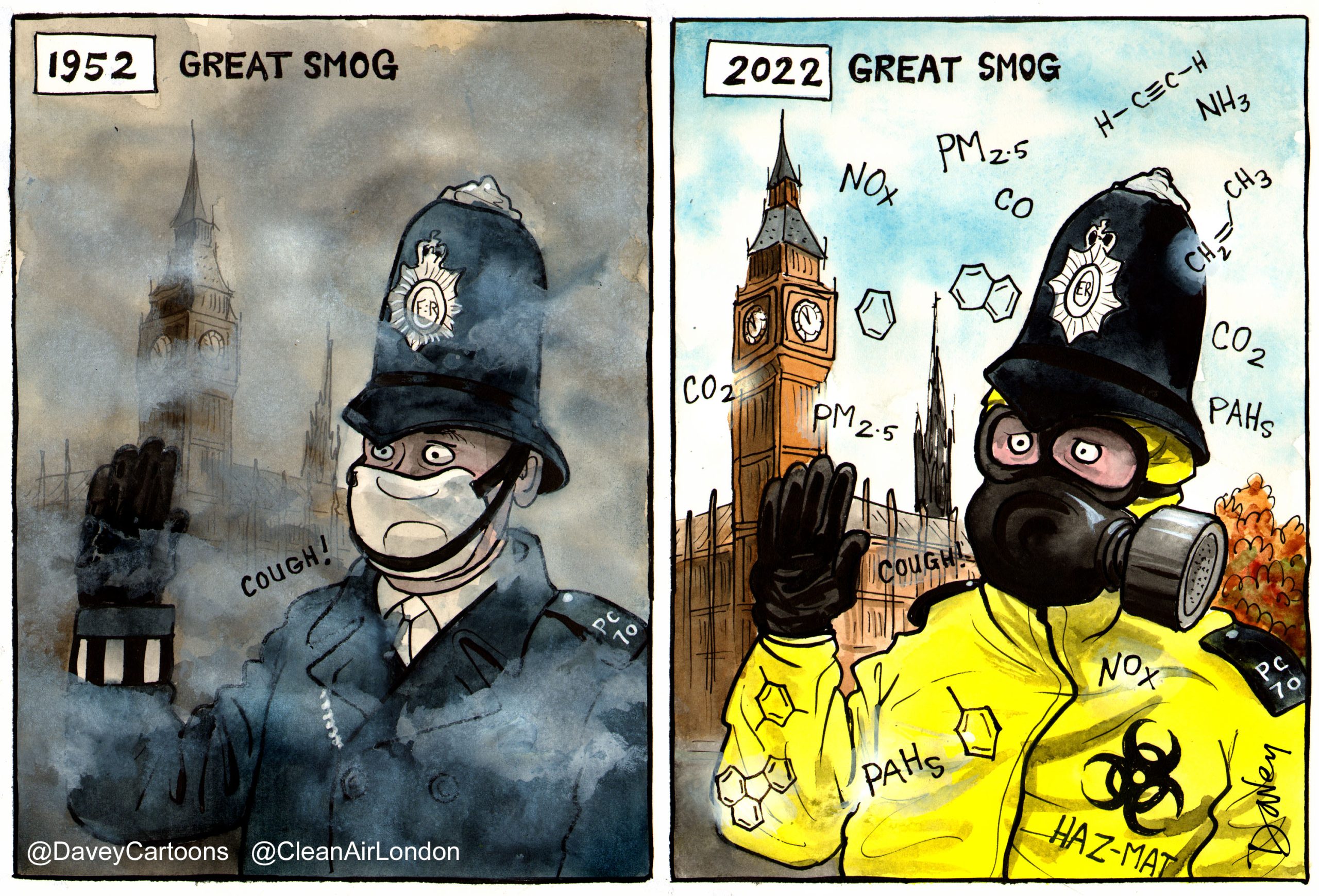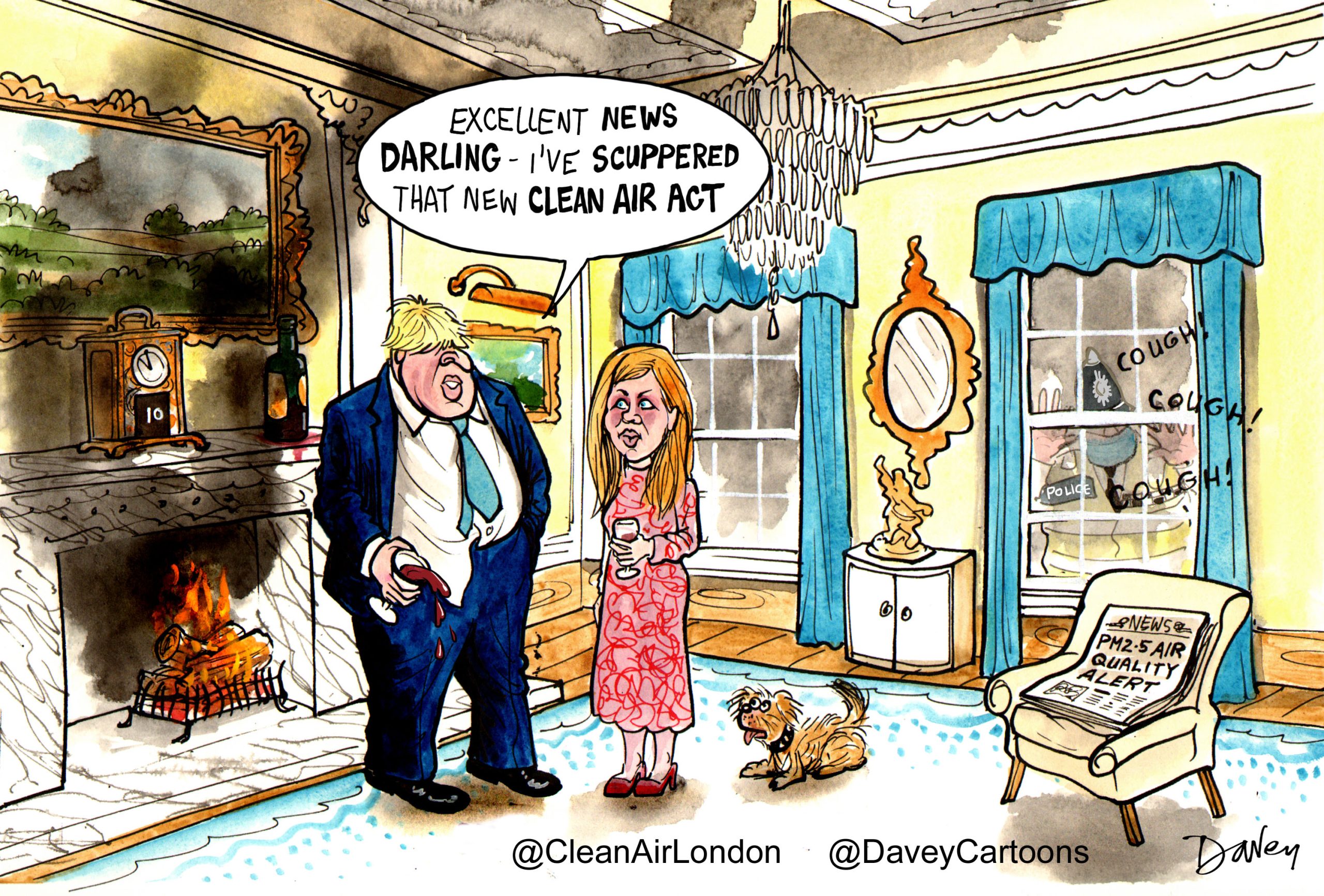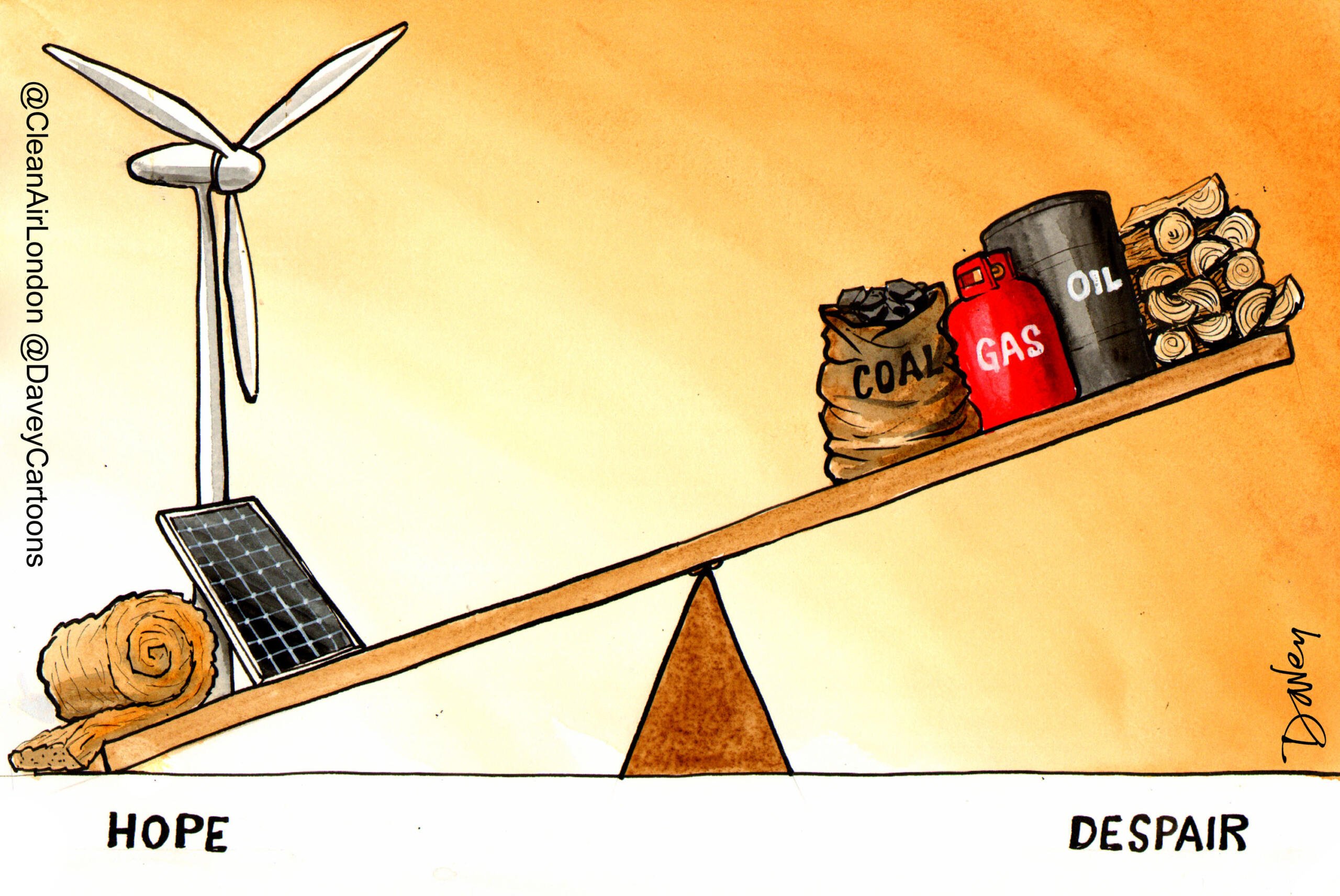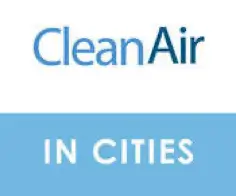Government has sought to blame European engine emission standards for oxides of nitrogen (NOx) for its failure to comply with nitrogen dioxide (NO2) limit values as part of its lobbying, with the Mayor of London, to weaken NO2 laws
Investigation by Clean Air in London (CAL) shows failures by successive Governments have dwarfed any by European engine emission standards. Ignoring 10 years of warnings, Governments are responsible for more than doubling primary NO2 emissions from diesel vehicles – even after allowing for the increase in NO2 emissions as a percentage of NOx emissions from around 5% to over 20%
Government is failing to stop the commercial removal or tampering with emissions control equipment that is designed to protect the public and may be actively ‘covering-up’ a much bigger problem. CAL has lodged an official complaint with the European Commission over the UK’s failure to implement Directive 2010/48/EU which specifies roadworthiness tests for motor vehicles and their trailers
CAL wants a public statement from Ministers confirming that a motor vehicle and/or trailer is not roadworthy if the engine or exhaust emission control equipment fitted by the manufacturer is absent, modified or obviously defective
Clean Air in London (CAL) has published a new report ‘Reducing exhaust emissions of nitrogen oxides (and particles) from diesel vehicles’.
CAL’s investigation has found that successive Governments have ignored the warning signs as carcinogenic diesel emissions have become the largest and most urgent air pollution problem in cities. Perhaps as seriously, the current Government is failing to stop the removal of emissions control equipment designed to protect the public from those emissions and may be actively ‘covering-up’ a much bigger problem.
At the heart of this problem are two pollutants: dangerous airborne particles (PM2.5 and PM10) and nitrogen dioxide (NO2). Legal limits for PM10 and nitrogen dioxide (NO2), a toxic gas, have been in legislation since 1999 to be complied with by January 2005 and 2010 respectively. The Government says it complied finally with PM10 limit values in London in 2011. The Government has admitted that the UK will not comply with NO2 limit values in 15 of 43 zones until 2020 and in London until 2025.
The Government downplays the health impacts of NO2, failing to mention that it is the only ‘modern’ molecule within the whole gaseous component of air pollution subject to World Health Organisation guidelines and legal limits. Whereas the particle component of air pollution is regulated by its total mass concentration, gases other than NO2 are largely ignored. It is vital therefore that levels of NO2 are reduced to avoid: its direct health effects and those of other toxic pollutants from combustion; and its contribution with nitrogen monoxide as a precursor to the formation of deadly particles. Sulphur dioxide, which is also regulated, has been largely eliminated as a problem by the use of ultra low sulphur fuels. NO2 limit values align with World Health Organisation guidelines whereas PM10 limit values are roughly double these guidelines.
Policy Exchange has estimated that diesel vehicles are responsible for 91% of PM2.5 and 95% of NO2 exhaust emissions from road transport in London. Air pollution is also an equality issue. Policy Exchange found, in its report titled ‘Something in the Air: The forgotten crisis of Britain’s poor air quality’ at in the worst 10% of London for NO2, 5-10 year old children are 47% more likely than the London average to be eligible for free school meals and residents are 26% more likely than the London average to be on income support.
Levels of NO2 in London are the highest of any capital city in Europe. But this is not just a London problem. The UK has the highest proportions of zones exceeding the NO2 annual limit value plus margin of tolerance of any country in Europe.
The Government has sought to blame European engine emission standards for diesel vehicles for its failure to comply with NO2 limit values on the grounds that real world exhaust emissions of oxides of nitrogen (NOx) from diesel vehicles have been higher than originally expected.
CAL has therefore investigated the facts. It was sought particularly to identify the main causes for the growth in emissions of NO2 from vehicles since 2000. Key findings include:
1. Euro engine emissions standards were never ‘technology neutral’ and included a large explicit ‘emissions gap’ for NOx for diesel vehicles relative to petrol. Further, they never set specific limits for NO2 emissions other than the need to keep within the much higher NOx ‘cap’;
2. by 2007, the Government’s own advisers were warning that diesel vehicles were responsible for an increase in NO2 emissions. The previous Government admitted by 2007 that diesel passenger cars emitted 16.9 times the PM10 in g/km and 1.84 times the NOx in g/km of petrol passenger cars in 2005 (based on emission factors from 2000). The problems with diesel emissions were confirmed again in 2010, 2011 and 2012;
3. despite these warnings, successive Governments have continued to incentivise the purchase and use of diesel vehicles such that the market share of diesel passenger cars has increased from 14.1% of the new car market in 2000 to 50.8% in 2012;
4. CAL has found that the shift from petrol to diesel cars since 2000, for which successive Governments have been responsible, has resulted in primary NO2 emissions in 2010 being more than twice the level they would have been under the 2000 car fleet mix scenario (107%) – even after allowing for NO2 emissions as a fraction of NOx emissions increasing from around 5% to 20% or more;
5. there remains a real danger that Euro 6 emissions standards will repeat the deficiencies of Euro 5 in reflecting real world emissions. The European Commission should therefore ensure that a new ‘world test cycle’ (the World Light Duty Test Protocol), that is still under development, will achieve substantial improvements over the current test cycle in reflecting real world NOx emissions from diesel vehicles;
6. businesses are offering to remove diesel particle filters (DPFs) and disconnect emission control units for as little as £299. CAL has heard that cheap DPF’s are being sold from the UK, perhaps including those removed from UK vehicles, into Germany where they may be fitted to enable vehicles to comply with local low emission zone standards; and
7. the UK is failing to implement Directive 2010/48/EU which specifies roadworthiness tests for motor vehicles and their trailers (e.g. 8.2.2.1). Ministers admitted on 1 February 2013 that:
“There is no statutory requirement in MOT testing procedures to ensure that particulate filters or other emission control equipment fitted to a vehicle at manufacture are working properly.”
The same Minister ‘boasted’ on 23 December 2012 that he had championed the removal of these requirements for caravans and other vehicles.
The Vehicle & Operator Services Agency is alleged to have admitted Note 6 “[Further,] it was therefore considered that the introduction of a Reason for Rejection for a missing diesel catalyst or filter at this stage, whilst complying with the Directive, was likely to lead to many incorrect failures, which is clearly unacceptable”.
CAL has lodged an official complaint with the European Commission over the UK’s failure to implement Directive 2010/48/EU which specifies roadworthiness tests for motor vehicles and their trailers.
CAL 227 Reducing NOx emissions from diesel vehicles_030413
CAL 227 VOSA SN 2013 1 Annex B
CAL 227 DfT guidance on ECU chips 180111
http://europa.eu/rapid/press-release_MEMO-13-22_en.htm
CAL 227 EC infringement statement 240113
CAL 227 EC Reasoned opinion 240113
CAL 227 infringements_energy 210213
Quotes
Simon Birkett, Founder and Director of Clean Air in London, said:
“Nitrogen dioxide (NO2) laws are the most powerful tool citizens have to hammer down carcinogenic diesel exhaust and other toxic pollutants from combustion.
“The Government and the Mayor of London are trying to blame European engine emissions standards for diesel vehicles for their failure to comply with legal limits for NO2.
“But their story is confused by the facts:
- Euro engine emissions standards, agreed by Member States at the EU level, set criteria for emissions of oxides of nitrogen not NO2 other than to keep within the much higher NOx cap; and
- primary emissions of NO2 for passenger cars would be less than half today if the market share of diesel vehicles had remained where it was when NO2 limit values were set i.e. making it much easier to have complied with those limit values.
“The facts show that successive Governments are largely to blame for encouraging diesel vehicles and failing to comply with NO2 limit values.
“In CAL’s view, we need:
- online and point of sale information for all new and used cars about official and/or real world emissions of CO2, PM10, NOx and NO2;
- a national framework of low emission zones, based on the German model and backed by scrappage grants to speed the exit of the oldest and most polluting diesel vehicles from the fleet;
- a rapid shift to ‘technology neutral’ taxation based on real world emissions of CO2, PM10, NOx and NO2;
- robust enforcement of Directive 2010/48/EU which specifies roadworthiness tests for motor vehicles and their trailers, with immediate changes to the MOT. Vehicles should be declared unroadworthy and/or lose their insurance if engine or emission control equipment fitted by the manufacturer is absent, modified or obviously defective.
“CAL wants a public statement from Ministers confirming that a motor vehicle and/or trailer is not roadworthy if the engine or exhaust emission control equipment fitted by the manufacturer is absent, modified or obviously defective.
“Successive Governments failed to agree ‘technology neutral’ standards for emissions, failed to act when the failings of diesel vehicles were identified and are deliberately allowing the vehicle testing regime to permit the continued use of diesel vehicles that have had their engine or emission control equipment removed.
“It is disingenuous or worse of the current Government to blame Euro engine standards for its failure to control emissions from all forms of combustion and comply with NO2 limit values.”
Note
1. ‘Diesel engine exhaust carcinogenic’ publication by International Agency for Research on Cancer dated 12 June 2012
http://www.iarc.fr/en/media-centre/pr/2012/pdfs/pr213_E.pdf
2. ‘Something in the Air: The forgotten crisis of Britain’s poor air quality’ by Policy Exchange dated 19 July 2012
3. Motor vehicles – exhaust emissions: Parliamentary answer from Stephen Ladyman MP, Minister of State in the Department of Transport, to James Arbuthnot MP on 25 June 2007
http://www.theyworkforyou.com/wrans/?id=2007-06-25e.145736.h
4. ‘Air Pollution: Action in a Changing Climate’ by Defra in March 2010
http://www.defra.gov.uk/publications/files/pb13378-air-pollution.pdf
5. Motor vehicles – carbon emissions: Parliamentary answer from Norman Baker MP, Parliamentary Under-Secretary of State (Regional and Local Transport) in the Department of Transport, to Karen Buck MP on 3 October 2011
http://www.theyworkforyou.com/wrans/?id=2011-10-03a.68700.h
6. See comment timed at 11.25 on 31 December 2012
http://www.honestjohn.co.uk/forum/post/index.htm?t=71579
CAL 227 Assessment of Primary NO2 emissions July 2001
CAL 227 SOS letter to Rt Hon Andrew Smith MP 140213
CAl 247 Exhibit 10_Carslaw Defra remote NO2 sensing report_Final 160713

